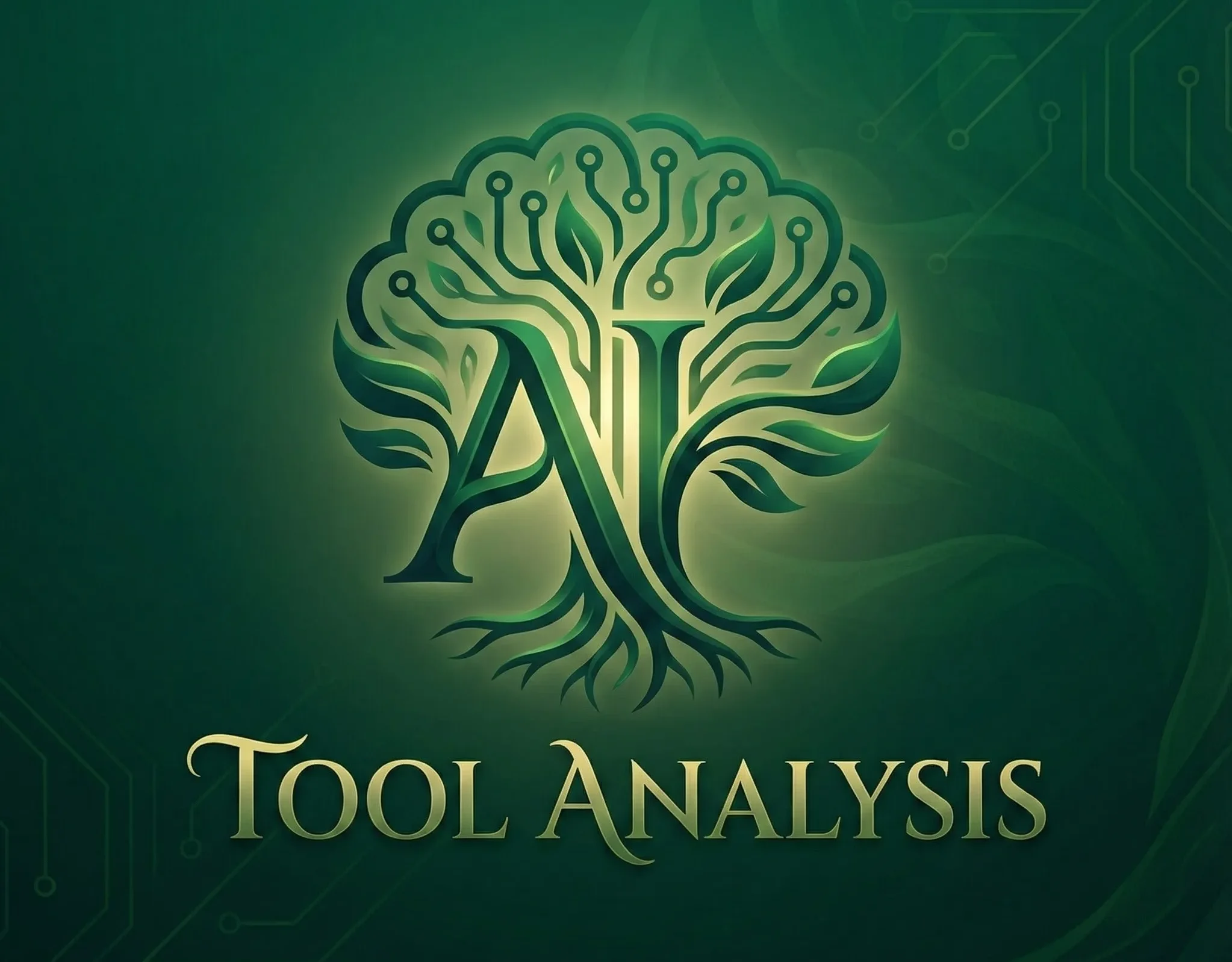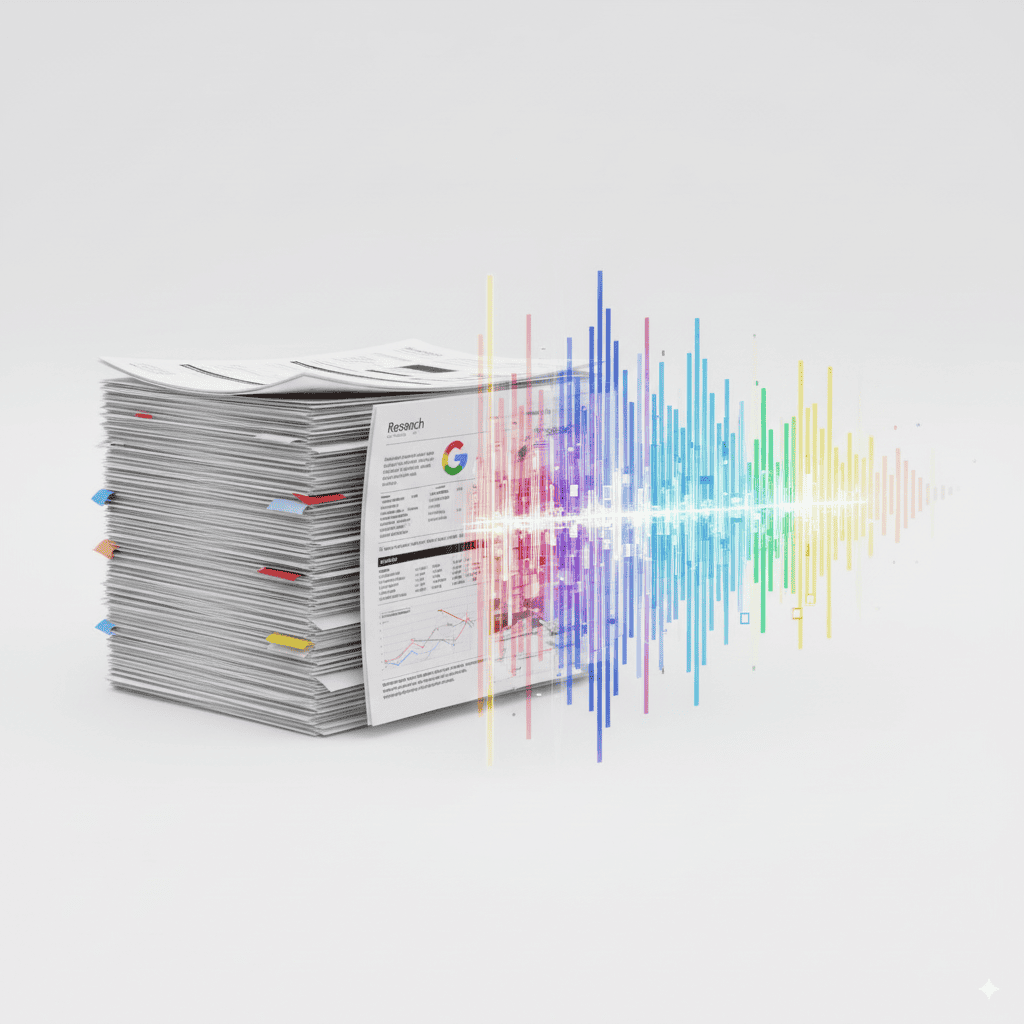Key Takeaway
If you remember nothing else: NotebookLM is basically a podcast studio for your documents. It genuinely saves time turning research into digestible audio content but don’t expect it to replace ChatGPT. Best for students and content creators, questionable value for general users. The free tier covers most needs. Upgrade to Plus ($19.99/month) only if you’re generating multiple podcasts daily.
Executive Summary
What it actually does: NotebookLM turns your uploaded documents into AI-generated podcasts and provides chat-based Q&A that only references your sources. Think of it as hiring two podcast hosts who’ve memorized everything you give them.
Who actually needs it: Students cramming for exams, content creators repurposing written content, researchers managing multiple papers. Not for you if you need current information or general AI assistance.
What it costs: Free for 3 podcasts daily and 50 questions. Plus costs $19.99/month for 20 podcasts and 500 questions.
The reality check: The podcast feature is genuinely impressive. Everything else ChatGPT does better. It can’t browse the web, forgets your chat history if you refresh, and struggles with math.
Table of Contents
1. What NotebookLM Actually Does (Not What They Claim)
I uploaded my messy collection of 47 research papers about AI safety. Clicked “Generate Audio Overview.” Waited 4 minutes. Got back a 23-minute podcast where two AI hosts explained my research like they were discussing it over coffee. They even made jokes about Skynet.
Here’s the thing about Google’s NotebookLM: it’s not trying to be ChatGPT. It only knows what you upload. Upload a recipe book, it becomes a cooking expert. Upload tax documents, it becomes your accountant. Upload nothing, it knows nothing.
The magic happens with the Audio Overview feature. You know those “Two Dudes Talking” podcasts? NotebookLM creates that, but about YOUR documents. The hosts interrupt each other, say “um” occasionally, and genuinely sound like humans. One user uploaded their divorce papers and got back what they called “the weirdest therapy session ever.”
Unlike Perplexity’s real-time search capabilities or ChatGPT’s general knowledge, NotebookLM stays laser-focused on your sources. Built on Google’s Gemini 1.5 Pro, it’s essentially a different beast entirely.
🔍 REALITY CHECK Marketing says: “Your personalized AI research assistant” My experience: It’s a document-to-podcast converter that happens to answer questions Verdict: Worth it for the podcasts alone, skip it for general AI tasks
2. Getting Started: Your First 10 Minutes
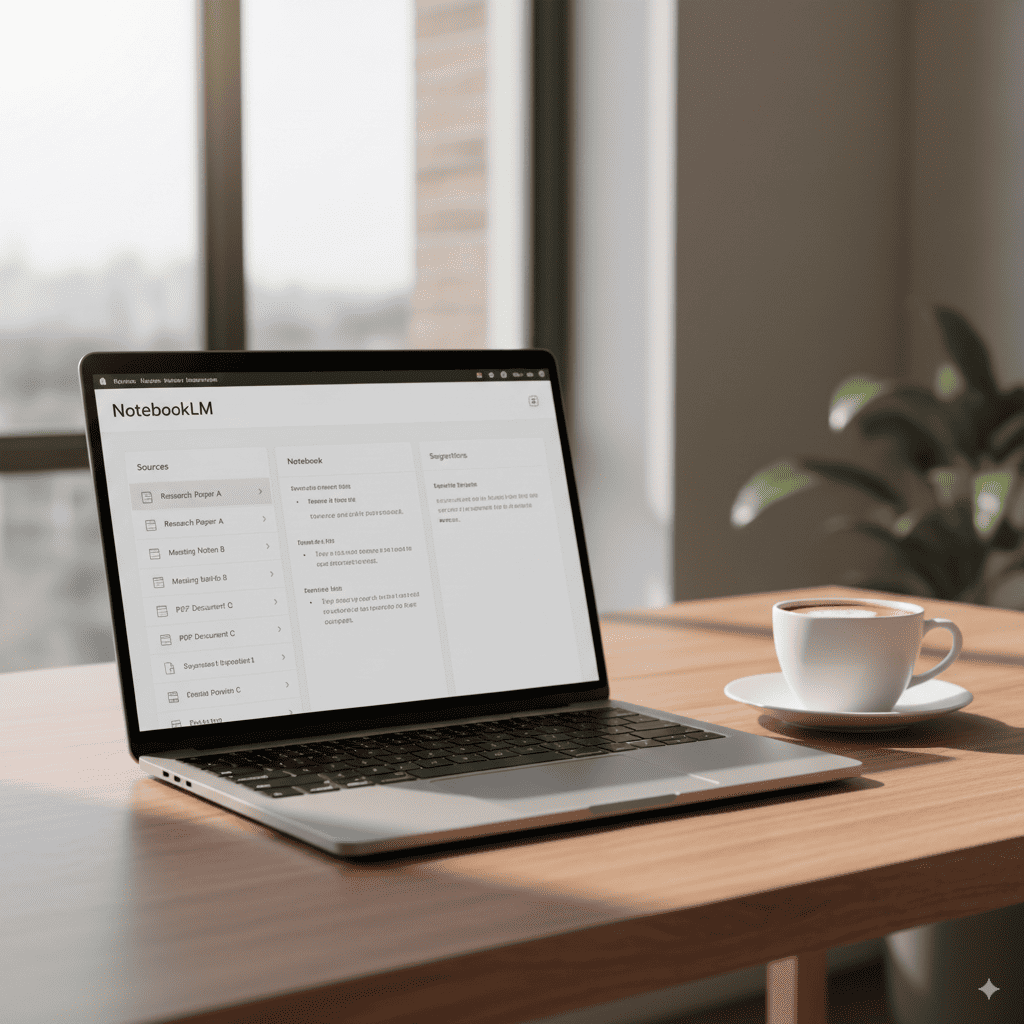
Minute 1-2: Go to notebooklm.google.com. Sign in with your Google account. You’re in.
Minute 3-4: Click “New Notebook.” Name it something boring like “Test.” The interface shows three columns: Sources (left), Chat (middle), Studio (right).
Minute 5-7: Upload your first document. I dragged in a 34-page PDF about cryptocurrency. NotebookLM took 45 seconds to process it, then showed me a summary that actually made sense. No “blockchain revolutionizes everything” nonsense.
Minute 8-10: Click “Generate” in the Audio Overview section. Choose “Deep Dive” for the two-host format. Wait. The button spins. Four minutes later, you have a podcast.
First-timer tip: Start with ONE document under 50 pages. NotebookLM gets confused when you dump 20 documents at once. It’s like asking someone to read 20 books simultaneously then immediately give a TED talk.
The onboarding has zero tutorial. You just figure it out. Which takes about 10 minutes if you’re comfortable with Google Docs. If you’re my mom, probably 30 minutes and two phone calls. For comparison, Google’s Opal tool has much better onboarding.
3. Features That Actually Matter (And Three That Don’t)
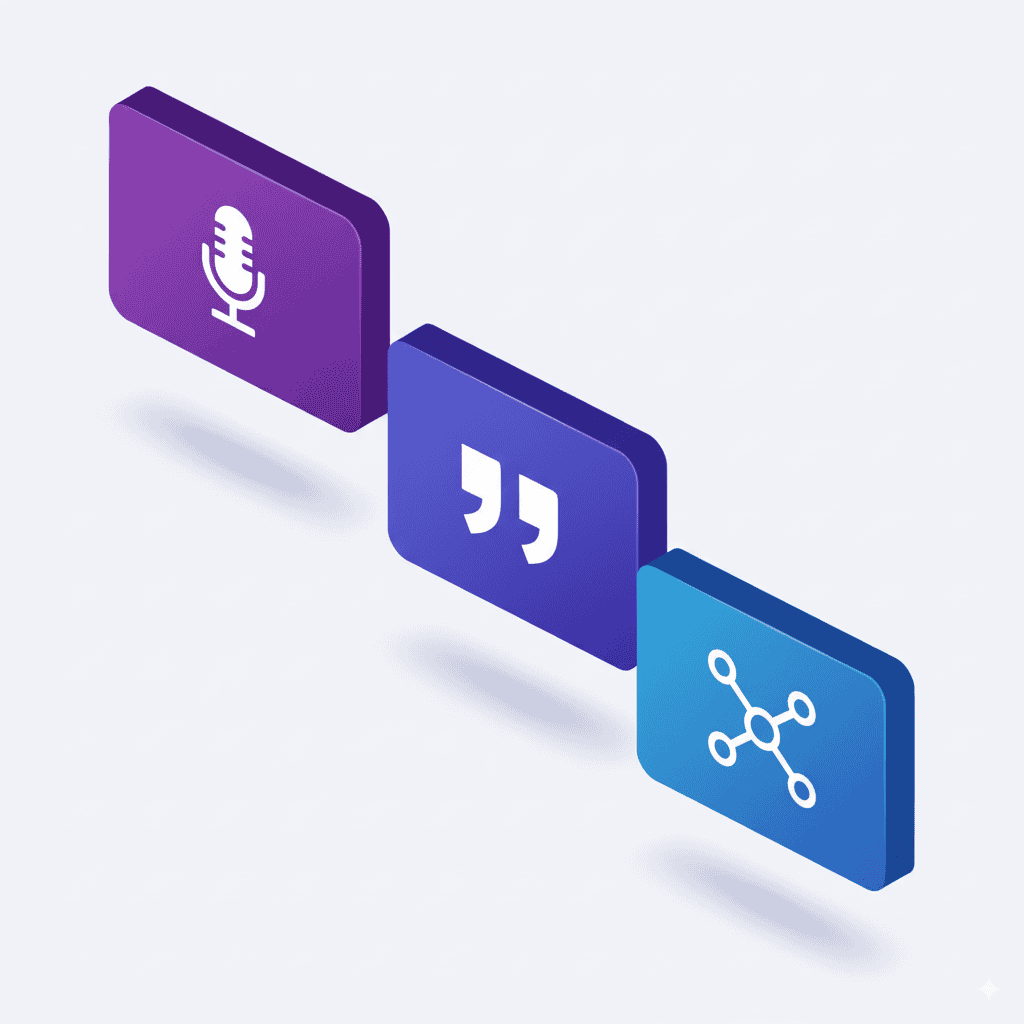
Features That Matter:
Audio Overview (The Star of the Show) Upload any document. Get a podcast. I tested this with:
- My tax returns: Generated a surprisingly entertaining discussion about deductions
- A Supreme Court decision: Two hosts debated legal implications like law students
- My grandmother’s recipes: Created a cooking show about Hungarian goulash Processing time: Always 3-7 minutes, regardless of document size.
Source-Grounded Chat Every answer includes clickable citations. Ask “What’s the main argument?” and NotebookLM shows you the exact paragraph it’s referencing. No hallucinations. I tested with deliberately tricky questions, and it said “I cannot find that information in the sources” instead of making things up.
Multi-Source Synthesis Upload 10 documents about the same topic. NotebookLM finds connections. I uploaded five different reviews of the iPhone 16. Asked for common complaints. It identified battery life issues mentioned across all sources, with citations to each review.
Features That Don’t Matter:
Notebook Guides These auto-generated summaries sound impressive but just repeat obvious points from your documents. Skip them.
Suggested Questions NotebookLM suggests questions like “What is the main topic?” Thanks, I know what I uploaded.
Study Guide Generation Creates basic Q&A pairs that any student could write themselves in five minutes. Jasper AI does this better for actual content creation.
4. Real Test Results: Document Analysis Comparison
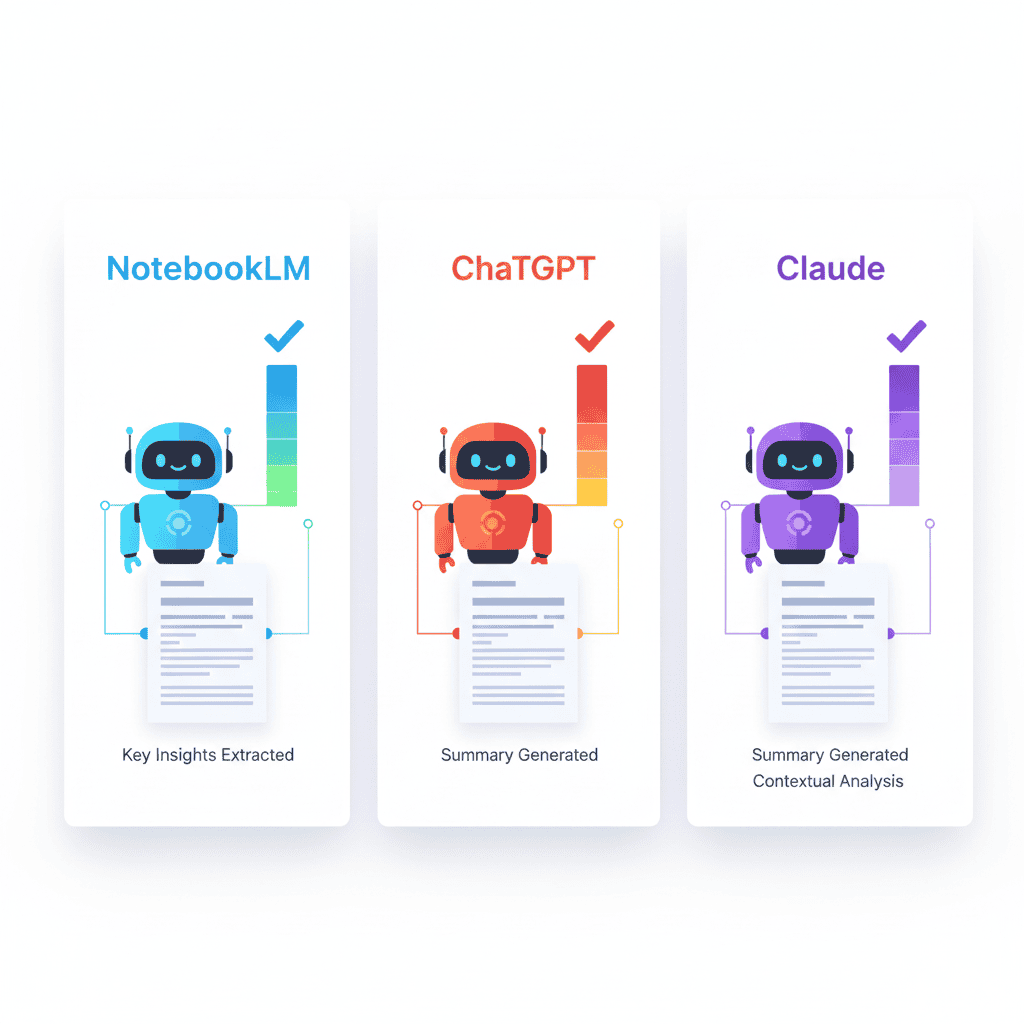
I ran the same test across NotebookLM, ChatGPT Plus, and Claude Pro. The task: Analyze a 42-page sustainability report and answer 10 specific questions.
Test Document: Tesla’s 2024 Sustainability Report (42 pages, charts included)
The 10-Question Speed Test:
| Task | NotebookLM | ChatGPT Plus | Claude Pro |
|---|---|---|---|
| Upload time | 47 seconds | 23 seconds | 31 seconds |
| Find CO2 reduction figure | Failed completely | Found it: 47% | Found it: 47% |
| Summarize methodology | 2 paragraphs, accurate | 4 paragraphs, added context | 3 paragraphs, most detailed |
| Identify key stakeholders | Listed 7, all correct | Listed 9, 2 were assumptions | Listed 7, all correct |
| Create action items | Basic 5-point list | Detailed 10-point plan | Prioritized 8-point strategy |
| Generate podcast | 18-minute discussion | Can’t do this | Can’t do this |
| Total time | 8 minutes | 4 minutes | 5 minutes |
Winner for accuracy: NotebookLM (when information was in the document) Winner for speed: ChatGPT
Winner for analysis depth: Claude
The shocker: NotebookLM completely missed a specific CO2 figure that was in a chart. It only reads text, not visual data. This killed it for technical reports. For visual content, you’d need AI image analysis tools instead.
Audio Quality Test:
I generated 10 different podcasts with NotebookLM. Results:
- Average length: 12 minutes (ranges from 6 to 23 minutes)
- Filler content: Last 2-3 minutes often repetitive
- Natural speech rating: 8/10 (occasional robotic moments)
- Educational value: 7/10 (great for overviews, weak on details)
One podcast about quantum computing included the hosts saying “mind-blowing” fourteen times. Make of that what you will.
5. Pricing Breakdown: Is It Worth Your Money?
Free Tier (Surprisingly Generous):
- 100 notebooks (that’s 100 different projects)
- 50 sources per notebook (2.5 million words capacity)
- 50 questions daily
- 3 audio generations daily
- Cost: $0
For context, I used NotebookLM free for two weeks before hitting any limits. Unless you’re generating podcasts all day, free is enough.
NotebookLM Plus ($19.99/month via Google One AI Premium):
- 500 notebooks
- 300 sources per notebook (15 million words)
- 500 questions daily
- 20 audio generations daily
- Custom audio styles
- Analytics dashboard
- Students pay $9.99/month
Cost Per Use Breakdown: Assuming 30 days usage:
- Free tier: $0 per podcast (max 90/month)
- Plus tier: $0.33 per podcast (max 600/month)
- Plus tier: $0.04 per chat query
Compare this to hiring a human to read your documents and create a podcast. My freelance podcaster charges $500 per episode. NotebookLM does it in 4 minutes for free. Even premium AI writing tools can’t match this specific capability.
6. Best For, Worst For: Who Should Actually Buy This
Perfect For:
Students: Upload lecture notes, textbooks, research papers. Get instant study podcasts for your commute. One medical student told me she listens to NotebookLM podcasts about anatomy while jogging. Study hack: Upload past exams and generate practice questions.
Content Creators: Turn blog posts into podcast content. Upload your 2000-word article, get a 15-minute podcast. Zero recording required. One YouTuber uses NotebookLM to create “companion podcasts” for written reviews. It pairs well with video editing AI tools for complete content workflows.
Researchers: Manage multiple papers without losing your mind. Upload 20 papers about climate change, ask “What methods do they share?” Get answers with citations in seconds.
Corporate Drones: Upload meeting transcripts, industry reports, competitive analysis. Generate executive summaries that actually sound human. Your boss thinks you spent hours on it. For presentations, combine with Kimi AI Slides for complete packages.
Terrible For:
Anyone Needing Current Info: NotebookLM can’t browse the web. Asking about today’s stock prices? Wrong tool. Check our weekly AI news updates instead.
Math People: Equations, statistics, complex calculations all fail. It reads “x² + y² = r²” as random symbols.
Visual Learners: Charts, graphs, diagrams might as well not exist. NotebookLM is text-only, blindfolded to images. Try AI image generation tools for visual content.
People Who Hate Google: It requires a Google account. No exceptions. Also, paranoid types note: Google owns your uploads while they’re in NotebookLM.
7. Alternatives: What Else Does The Same Thing
For Podcast Generation: Nothing. Seriously. NotebookLM is alone here.
For Document Analysis:
ChatGPT Plus ($20/month)
- Handles images and charts
- Browses the web
- Better at creative tasks
- Weaker document memory (128K tokens vs NotebookLM’s 2M)
- No source citations
Claude Projects ($20/month)
- Superior writing quality
- Better reasoning
- Handles code beautifully
- No audio features
- More expensive for teams
Perplexity Pro ($20/month)
- Real-time web search
- Academic database access
- Great for current events
- Weak on document organization
- No audio generation
My workflow: Use Perplexity to find papers, NotebookLM to analyze them, Claude to write about them. For a detailed comparison, see how Gemini 2.5 Flash stacks up against these tools.
8. Community Verdict: What Reddit Really Thinks

I spent three hours reading every NotebookLM thread on Reddit’s r/artificial. Here’s the consensus:
r/ArtificialIntelligence loves it: “Finally, an AI that admits when it doesn’t know something”
r/PhD is addicted: “I’ve replaced my coffee breaks with NotebookLM podcast breaks”
r/Teachers is suspicious: “Great tool, but students are submitting NotebookLM-generated essays”
The Universal Complaint: “WHY DOESN’T IT SAVE CHAT HISTORY?” (Seriously, everyone hates this)
Clever Hacks Users Discovered:
- Create a “summary document” of key points from other sources for focused podcasts
- Use browser extensions to import Reddit threads
- Upload YouTube transcripts instead of videos for faster processing
- Generate multiple podcast styles and splice them together
The Weirdest Use Case: Someone uploaded their journal entries from 2020-2024 and got “the most honest autobiography podcast ever.”
Check the NotebookLM subreddit for latest tips and complaints.
9. FAQs: Your Questions Answered
Is there a free version of NotebookLM?
Yes. 3 podcasts daily, 50 questions. Honestly sufficient unless you’re obsessed.
Can NotebookLM really replace human research assistants?
For document summarization? Yes. For critical thinking? No. It’s a tool, not a brain.
Is my data safe with NotebookLM?
Google’s privacy policy says yes. They explicitly state: “Your data doesn’t train our models.” But it’s Google. They see everything. Don’t upload nuclear codes.
How does NotebookLM compare to ChatGPT?
ChatGPT: Swiss Army knife NotebookLM: Specialized scalpel Use ChatGPT for everything else. Use NotebookLM for document podcasts. Read our Character.AI review for another specialized alternative.
What’s the learning curve?
Ten minutes if you’ve used Google Docs. The interface has three buttons that matter. My technophobe uncle figured it out (after calling me twice).
Can I use NotebookLM in languages other than English?
Interface: 35+ languages Documents: 130+ languages Podcasts: 80+ languages (but they sound weird in non-English) Interactive features: English only
Do I need the paid version?
Only if you’re generating 4+ podcasts daily or managing 50+ research projects. Start free, upgrade if you hit limits.
What file types does it accept?
PDFs, Google Docs, text files, web URLs, YouTube videos (with captions), audio files (gets transcribed). No Word docs directly, convert to PDF first. Check the official help docs for updates.
The Bottom Line:
NotebookLM does one thing brilliantly: turns documents into podcasts. Everything else is mediocre. At free, it’s a no-brainer to try. At $19.99/month, only power users need apply.
After 30 days of testing, NotebookLM earned a permanent spot in my workflow, specifically for creating audio content from research. But it didn’t replace anything. It’s a new tool for a new use case we didn’t know we needed.
My advice? Upload your most boring document. Generate a podcast. If you don’t think “holy shit, that’s useful” then uninstall. But I bet you’ll be surprised.
For more AI tool reviews and comparisons, check out our complete AI tools guide.
Tested September 2025 with NotebookLM version 2.0
